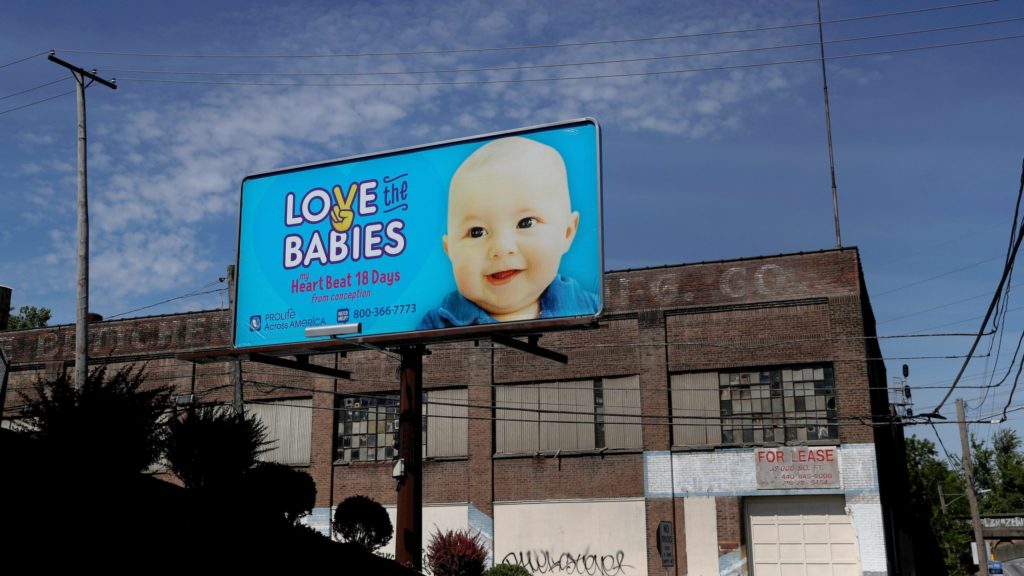An Ohio measure that would codify abortion access in the state's constitution has qualified for the November ballot, but its fate may be determined by the outcome of a special election in August that raises the threshold for amending the state's constitution.
State officials said July 25 that the abortion measure advanced by the Ohio Physicians for Reproductive Rights and Ohioans for Reproductive Freedom gained enough signatures to place an amendment before the voters Nov. 7, which would in effect enshrine access to abortion in the state's constitution.
The measure would legalize abortion up to the point of viability unless a physician decided an abortion was necessary for the sake of the mother's life or health. Although Ohio lawmakers enacted a six-week abortion ban, that measure is tied up in state court, meaning abortions remain legal in Ohio up to 22 weeks of pregnancy.
Mehek Cooke, an Ohio attorney opposing the measure, told reporters on a July 27 press call that adopting the amendment would be "a green light for abortion up until birth."
Cooke said that if enacted, the amendment would "not allow even the Ohio Legislature to act and protect our constituents because the amendment specifically states that the state shall not discriminate, burden, penalize, or interfere with any individual making reproductive decisions."
"So basically this constitutional amendment is going to take precedence not only over parents, but over the Legislature and over anything that the governor tries to do," she said.
In the November 2022 elections following the U.S. Supreme Court's June decision in Dobbs v. Jackson Women's Health Organization that overturned prior precedent finding abortion access a constitutional right, voters in states across the U.S. either rejected ballot measures meant to restrict abortion, or voted to codify measures protecting the procedure.
In a July 25 joint statement, Ohioans United for Reproductive Rights Executive Committee members Lauren Blauvelt and Dr. Lauren Beene celebrated their measure's qualification for the November ballot.
"Now that the petition drive is complete, we’re eager to continue the campaign to enshrine those rights in Ohio’s Constitution and ensure that Ohioans will never again be subject to draconian reproductive health care policies imposed by extremists," Blauvelt and Beene said.
But Stephen Billy, vice president of state affairs for Susan B. Anthony Pro-Life America argued that those seeking the abortion measure are doing so because there is "no support for their extreme policy" to be adopted in the Legislature.
"They know that there's very few Americans who believe in unrestricted abortion access abortions up until the moment of birth," Billy said, "and because of that, they know they can't succeed going through a legislative process."
As supporters of the abortion measure were seeking enough signatures for it to qualify for the ballot, Ohio's Republican-controlled Legislature authorized an August special election to decide whether to raise the threshold for passing constitutional amendments. So the outcome of the August election could change the percentage of votes required for the abortion ballot measure to pass in the fall.
Issue 1 would require 60% of voter support to amend Ohio's constitution, as opposed to the state's current requirement of 50% plus one vote. If Ohio voters approve raising the threshold in the Aug. 8 special election, it would be more difficult -- but not impossible -- for the abortion measure to pass in November.
Supporters argue raising that threshold would bring Ohio's constitution more in line with the U.S. Constitution, which requires a two-thirds vote of both chambers of Congress or two-thirds of states in convention, to propose an amendment. The amendment must then be ratified by three-fourths of the state legislatures to take effect.
But opponents of changing the Ohio amendment process argue the measure would disenfranchise majorities of voters on key issues, not only the upcoming ballot initiative on abortion, and would mark a significant break with longstanding precedent for amending the state constitution. Opponents also argue supporters tailored Issue 1 so that the abortion ballot measure would fail in November.
The Catholic Conference of Ohio states on its website the Ohio bishops do not have a position on Issue 1 as it "does not have moral content" but encourage Catholics to register and vote in the special election, citing the U.S. bishops' teaching in "Faithful Citizenship" that "responsible citizenship is a virtue, and participation in political life is a moral obligation."

